ECCT-MoFA Green Leadership Forum Series, Part 4
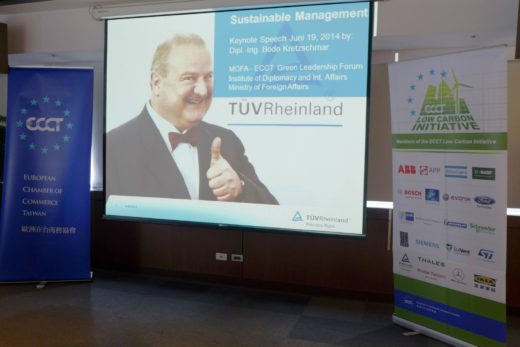
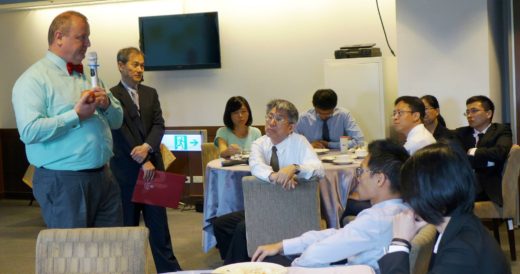
The global population continues to grow while rising living standards have increased the demand for comfort and the rate human beings are consuming resources has already reached unsustainable levels. He noted that we are using more resources than any other generation in the past and we will be the generation that will use the most resources. Taiwan is a relatively developed country and therefore it shares a responsibility with the rest of the world to take action to become sustainable.
We are now seeing rising prices for ...
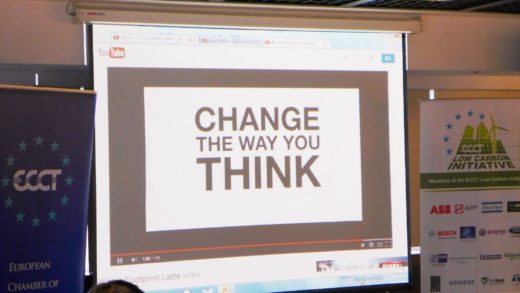
However, getting people to change is difficult because we have become too comfortable and complacent. We need to set frameworks for a sustainable world. We have only recently begun to talk about and focus on sustainability, which, from a human perspective, is defined as meeting the needs of the present generation without compromising the ability of future generations to meet their own needs and improve the quality of life while living within the carrying capacity of the earth's supporting eco-systems.
There are four basic actions that we need to take to become sustainable: reduce dependency on fossil fuels, reduce our dependence on synthetic chemicals and heavy metals, reduce the destruction of nature and ensure the access of basic needs for all humans globally (clean air, water and food).
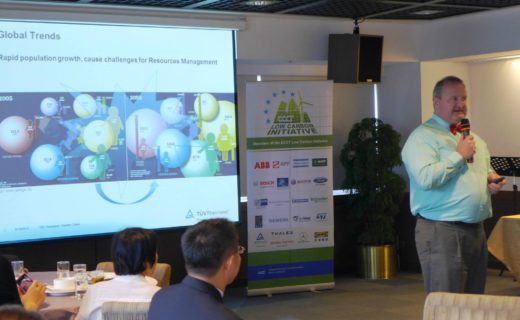
We need to have global legislation and Europe is doing this by setting carbon reduction goals, setting legislation for energy efficiency, stepping up the installation of renewable energy systems and banning other emissions besides CO2 (eg hydroflourocarbons and nitrogen oxides).
The EU's carbon tax on planes was controversial but necessary. The US has also finally taken action on climate change by setting various goals for air quality, chemicals, protecting waters among others.
China is also investing RMB5 billion over 10 years to promote green energy. Taiwan has taken action over the years but much more could be done given the perfect location for several kinds of renewable energy including solar, wind and geothermal energy.
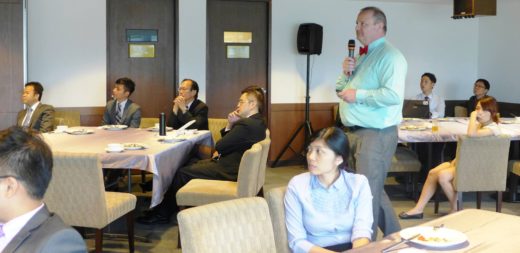
A number of corporations and agencies have certifications for sustainability but there is little understanding of what they mean. For example, few people truly understand what a carbon footprint is and how carbon footprints are measured. Raising awareness of the impact our consumption of goods and services has on the environment is important in order to prompt people to take action to reduce their carbon footprints. Kretzschmar used a graphic example. He had brought along an apple imported from New Zealand, which he showed to the audience and explained that the carbon footprint (mostly owing to the emissions from transporting the apple from New Zealand to Taiwan) of that single apple was 10 kgs.
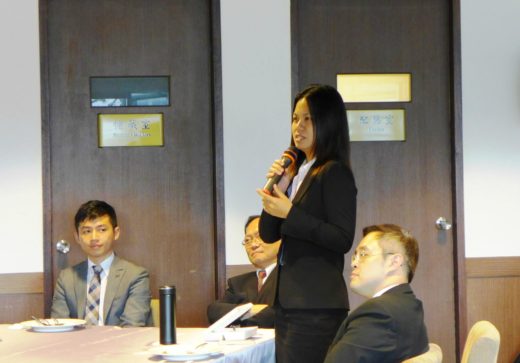
Meanwhile, taking a flight to Hong Kong produces 500 kgs of carbon per person on average. These are just some examples of the scale and impact our actions have on the environment.
TÜV Rheinland verifies GHG emissions in both international and national schemes and then verifies carbon footprints of companies or products that take into account the life cycle's energy and material consumption. Taiwan phone company HTC, for example, measured the carbon footprint of its "One" smart phone. The company found that 58.4% of its carbon footprint over the life of the product was from resource extraction and production, 7.2% from transportation, 34.3% from usage (energy used for recharging) and 0.1% from recycling.
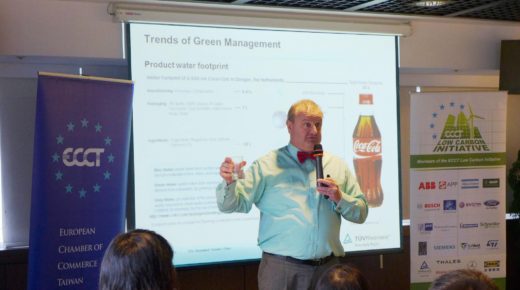
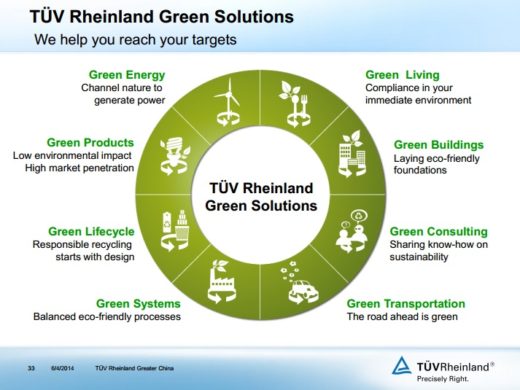
TÜV's own green product mark measures carbon footprints, recyclability and chemical use to help its customers reach their targets. The trend towards greater green accounting and measurement is becoming more widespread and sophisticated. A number of green standards are being developed and implemented related to eco-design, eco-efficiency, material flow cost accounting, event sustainability and business continuity management systems.
